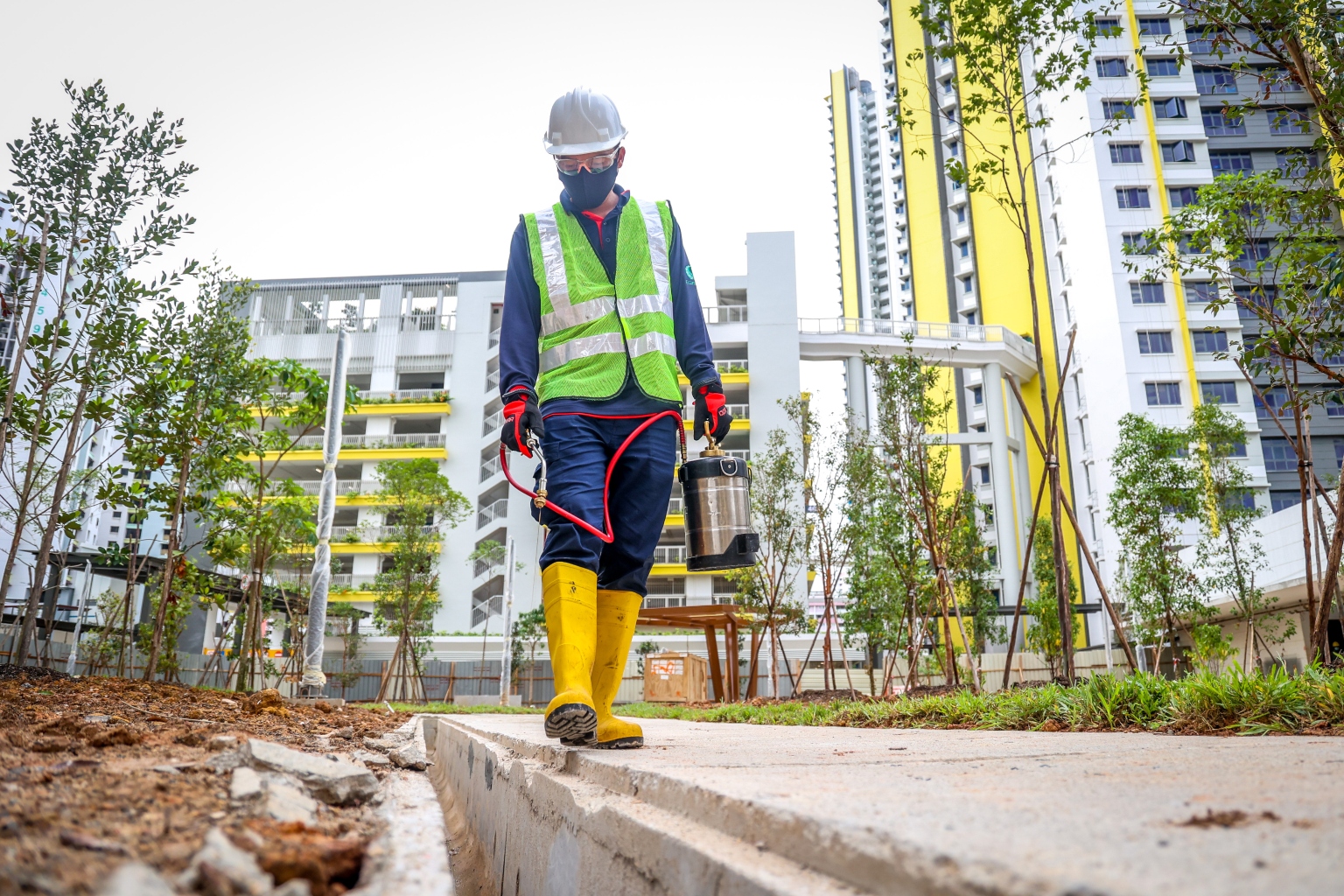Dengue cases in S'pore declining after early spike ahead of peak season: NEA
Sign up now: Get ST's newsletters delivered to your inbox

As at Tuesday, there were 144 active dengue clusters, according to the the National Environment Agency's website.
PHOTO: LIANHE ZAOBAO
Follow topic:
SINGAPORE - About 11,300 mosquito breeding habitats have been detected here in the first half of the year, though dengue cases have been declining following an early spike ahead of the yearly peak dengue season.
The weekly number of reported dengue cases has declined from a high of 1,568 in May to under 600 in September, while the number of dengue clusters has dropped by about 62 per cent from a high of 422 clusters in June, said the National Environment Agency on Wednesday.
As at Tuesday, there were 144 active dengue clusters, according to the agency's website.
In 2021, a total of about 18,500 mosquito breeding habitats were uncovered islandwide.
Singapore experienced early signs of a dengue outbreak in February, with weekly cases rising above 200, ahead of the June to October peak season.
The early spike was due to a number of factors, including the high Aedes aegypti mosquito population, circulation of the previously uncommon Dengue 3 virus serotype, as well as warm, rainy and humid weather.
"Despite the unusual early rise in dengue cases this year, the collective efforts of stakeholders and the community have allowed us to manage the outbreak without reaching the peak dengue case numbers seen in the huge 2020 outbreak," NEA said.
As at Sept 24, 27,761 dengue cases have been reported. In 2020, dengue cases soared to a record high of 35,315.
"However, continued vigilance is critical, as weekly dengue cases remain high and could continue to remain high beyond the traditional peak dengue season. NEA therefore urges all stakeholders to sustain dengue prevention measures, to bring down dengue case numbers further," the agency added.
Of the 11,300 mosquito breeding habitats detected in the first half of the year, households accounted for 63 per cent of all dengue cluster areas, followed by public areas at 25 per cent. Only 4 per cent of clusters were detected in construction sites and 8 per cent were detected in premises such as schools, dormitories and factories.
These figures were released in the agency's Integrated Sustainability Report for Financial Year 2021, which provides an account of its corporate, financial and sustainability performance.
The report looks at NEA's performance across 20 areas, including waste reduction, recycling, building Singapore's climate resilience and dengue management.
NEA added that about 409,000 dengue inspections have been conducted in the first half of this year, which includes 2,800 inspections at construction sites.
Fines have also been issued to 1,300 households for mosquito breeding and 6,565 legal notices have been given to home owners and occupiers.
NEA also issued 70 Stop Work Orders to construction sites and charged 28 contractors in court.
Studies have shown that the Singapore population's immunity towards dengue is low. However, the probability of one getting a first infection each year is now at less than 1 per cent, compared with about 5 per cent in the 1970s and 10 per cent in the 1960s.
NEA said that Singapore was the first country to trial and implement Wolbachia technology in high-rise, high-density tropical environments.
Project Wolbachia involves the release of male mosquitoes infected with the Wolbachia bacteria to control the population of Aedes aegypti mosquitoes, which spread dengue. The bacteria is found in many insects, but not in the Aedes aegypti mosquito.

When male Wolbachia-Aedes mosquitoes mate with female Aedes aegypti mosquitoes that do not carry the bacteria, the resulting eggs do not hatch.
"Field releases of these mosquitoes began in October 2016, after years of laboratory studies, risk assessments and robust public communications and community engagement," said NEA.
Since July, Project Wolbachia has been expanded to eight additional sites, including in Sengkang, Punggol, Hougang and Woodlands.
"While it is hoped that Wolbachia-Aedes technology could be used as a complementary dengue control tool in the future, it is not a silver bullet, and everyone must do their part to reduce the mosquito vector population and mosquito breeding habitats, to minimise the risk of dengue transmission," said NEA.

